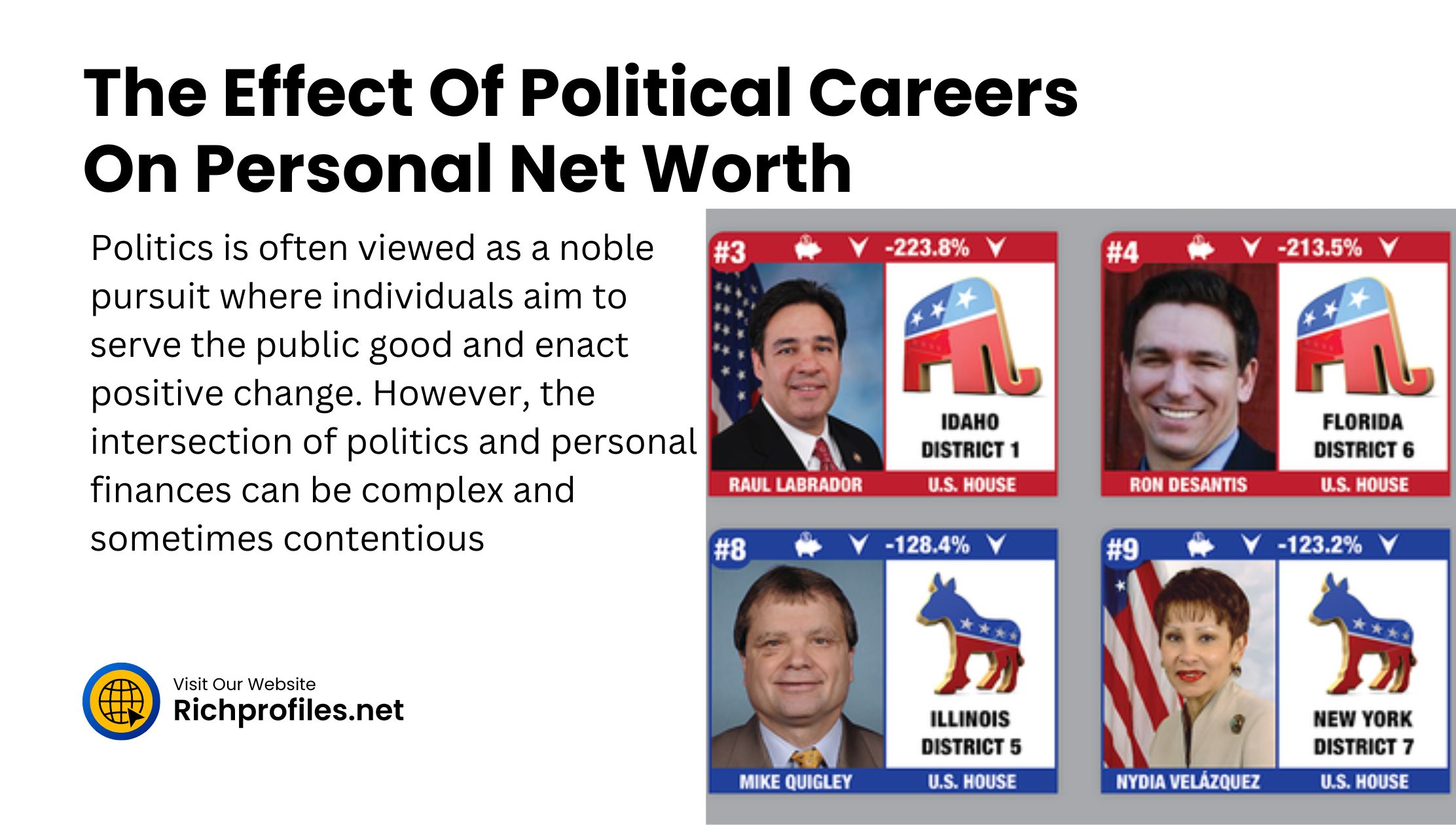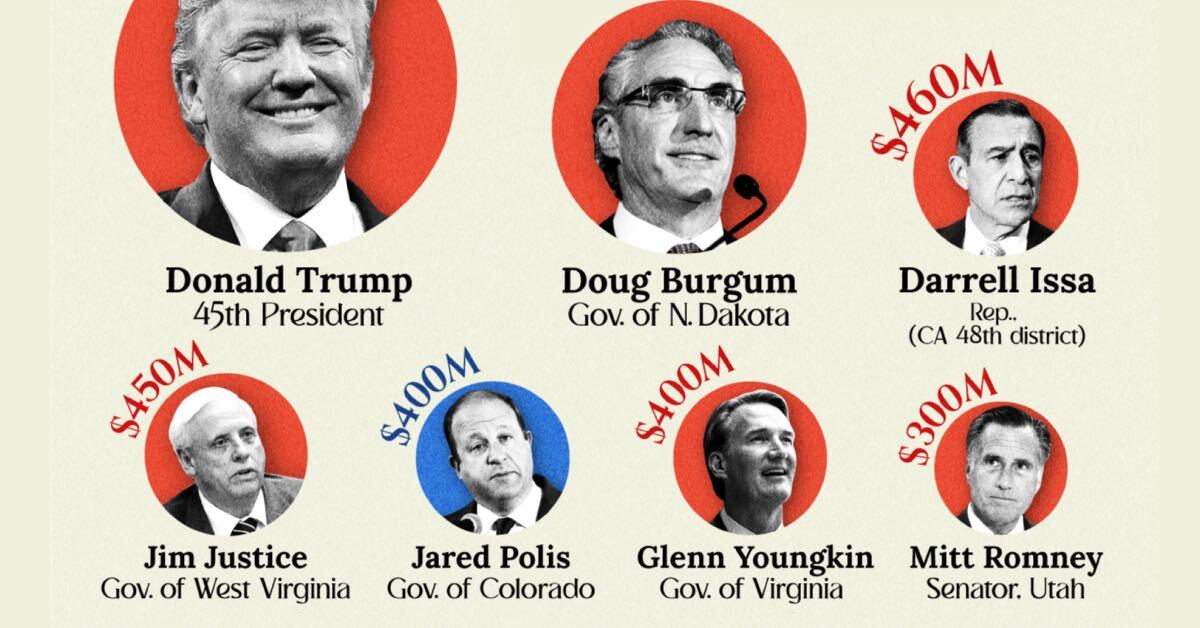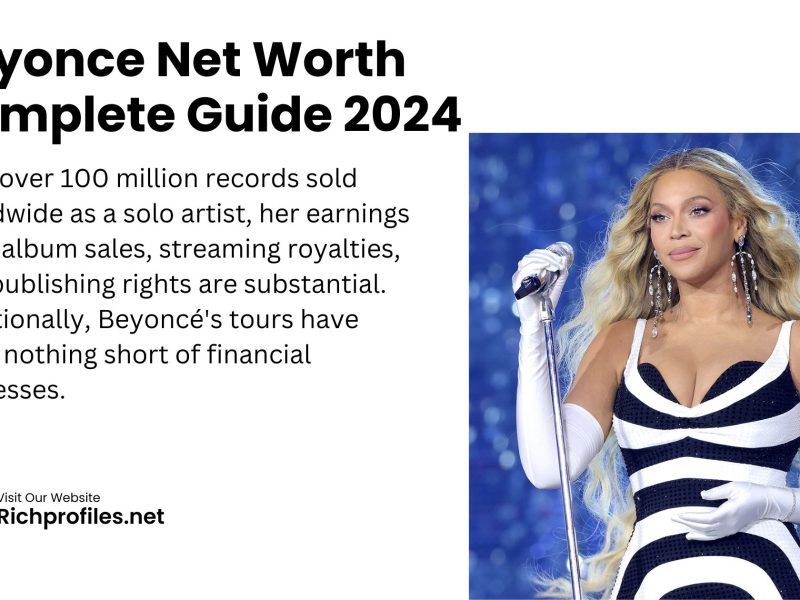The Effect of Political Careers on Personal Net Worth 2024 Guide
Politics is often viewed as a noble pursuit where individuals aim to serve the public good and enact positive change. However, the intersection of politics and personal finances can be complex and sometimes contentious. In this article, we delve into the effect of Political Careers On Personal Net Worth, exploring the various factors at play and their implications.
Introduction
What is Personal Net Worth?
Personal net worth refers to the total value of an individual’s assets minus their liabilities. It is a measure of financial wealth and can include various assets such as real estate, investments, and savings accounts. Understanding personal net worth is crucial for assessing an individual’s economic health and stability.
The Intersection of Politics and Personal Finances
Politics has long been associated with power and influence, and it is no secret that elected officials often wield significant authority. This raises questions about the impact of political careers on personal wealth. Do individuals in positions of political power accumulate more wealth than their counterparts in other professions? And if so, what factors contribute to this phenomenon?
Factors Affecting Political Careers
Influence of Political Position
One of the primary factors influencing personal net worth in politics is the level of political position held by an individual. Higher-ranking officials, such as senators, governors, and presidents, often have access to more excellent resources and opportunities for financial gain.
Lobbying and Special Interest Groups
Another factor to consider is the influence of lobbying and special interest groups. These entities often contribute significant sums of money to political campaigns and may seek to influence policy decisions in their favor. This can create opportunities for politicians to benefit financially from their connections and alliances.
Income Discrepancies in Politics
Salaries of Elected Officials
While elected officials receive salaries for their public service, these salaries may vary widely depending on the level of government and the specific position held. For example, members of Congress earn significantly higher wages than state legislators or city council members.
Additional Sources of Income
In addition to their official salaries, politicians may also earn income from other sources, such as investments, business ventures, or speaking engagements. These additional sources of income can contribute to disparities in personal net worth among political figures.
Opportunities for Wealth Accumulation
Insider Trading Controversies
One controversial aspect of political wealth accumulation is insider trading. Elected officials often have access to privileged information that can influence financial markets, leading to allegations of insider trading and calls for greater transparency and accountability among politicians.
Book Deals and Speaking Engagements
Many politicians capitalize on their public profiles by writing books or engaging in speaking engagements. These endeavors can be lucrative and contribute significantly to their net worth. However, they also raise questions about conflicts of interest and the ethical implications of profiting from one’s political position.
Ethical Considerations
Conflicts of Interest
The most significant ethical concern surrounding the intersection of politics and personal finances is the potential for conflicts of interest. When politicians stand to benefit financially from their policy decisions, it raises questions about their motives and priorities.
Public Perception and Trust
The perception of impropriety can erode public trust in the political system and undermine confidence in elected officials. Transparency and accountability are essential for maintaining public trust and ensuring that elected officials serve the interests of their constituents rather than their financial gain.
Read More: Net Worth Advice For Expatriates In Asia
Case Studies
Notable Examples of Politicians’ Financial Trajectories
Examining specific case studies can shed light on the complexities of the relationship between political careers and personal net worth. From self-made millionaires to individuals embroiled in financial scandals, the stories of politicians’ financial trajectories are as diverse as they are revealing.
Impact on Elections
Campaign Financing and Personal Wealth
The role of personal wealth in political campaigns cannot be overstated. Wealthy candidates often have a significant advantage in fundraising and may be able to self-finance their campaigns, giving them a competitive edge over less affluent opponents.
Voter Perceptions and Biases
Voters’ perceptions of candidates’ wealth can also influence their voting behavior. Some may view wealthy candidates as out of touch with ordinary citizens’ needs, while others may see their wealth as a sign of success and competence.
Long-Term Financial Effects
Retirement Benefits and Pensions
Many politicians’ time in office is followed by retirement, during which they may receive generous pensions and benefits. These financial perks can have a significant impact on their long-term financial security and net worth.
Post-Political Careers
Even after leaving office, former politicians often have opportunities to capitalize on their political connections and experiences. Whether through consulting, lobbying, or joining corporate boards, these post-political careers can contribute to continued wealth accumulation.
Mitigation Efforts
Financial Transparency Laws
To address concerns about conflicts of interest and financial impropriety, many jurisdictions have implemented financial transparency laws requiring elected officials to disclose their income, assets, and investments. These laws aim to promote accountability and discourage unethical behavior.
Ethics Committees and Regulations
Ethics committees and regulatory bodies play a crucial role in enforcing standards of conduct among elected officials. By investigating allegations of misconduct and imposing sanctions when necessary, these entities help uphold the integrity of the political process.
Conclusion
In conclusion, the effect of political careers on personal net worth is a complex and multifaceted issue. While some politicians undoubtedly benefit financially from their positions of power, others may face scrutiny and criticism for perceived conflicts of interest or unethical behavior. By examining the various factors at play and considering the ethical implications, we can better understand the dynamics of wealth accumulation in politics.
FAQs
Do all politicians become wealthy?
- Not all politicians become wealthy, but the potential for financial gain exists for those in positions of power and influence.
Are there laws governing politicians’ finances?
- Yes, many jurisdictions have laws requiring elected officials to disclose their financial interests to promote transparency and accountability.
Can politicians profit from insider trading?
- While it is illegal for anyone to engage in insider trading, allegations of politicians profiting from privileged information have surfaced in the past.
How do voters perceive wealthy politicians?
- Voter perceptions of wealthy politicians vary, with some seeing wealth as a sign of success and others viewing it as a barrier to understanding the needs of ordinary citizens.
What happens to politicians’ finances after they leave office?
- Many former politicians continue to earn income through post-political careers such as consulting, lobbying, or speaking engagements.




